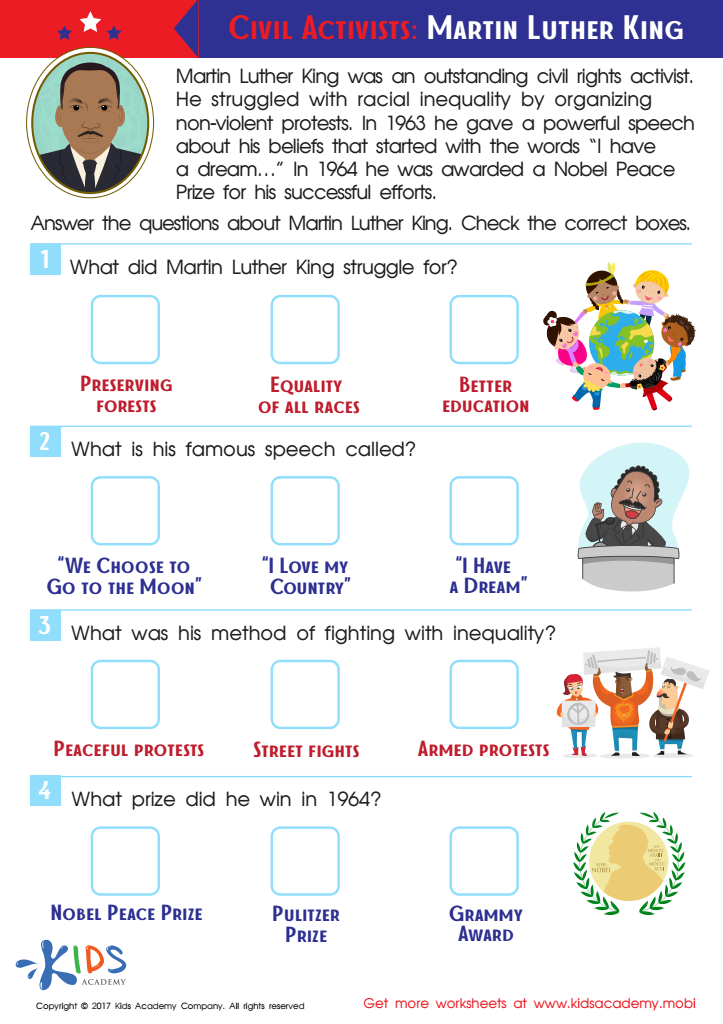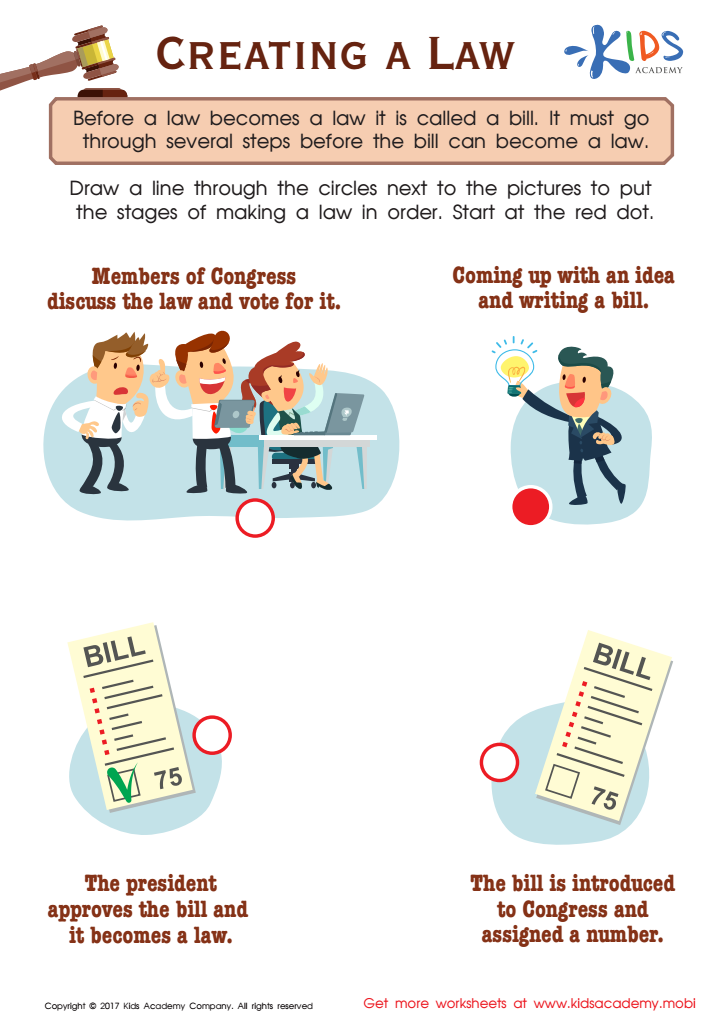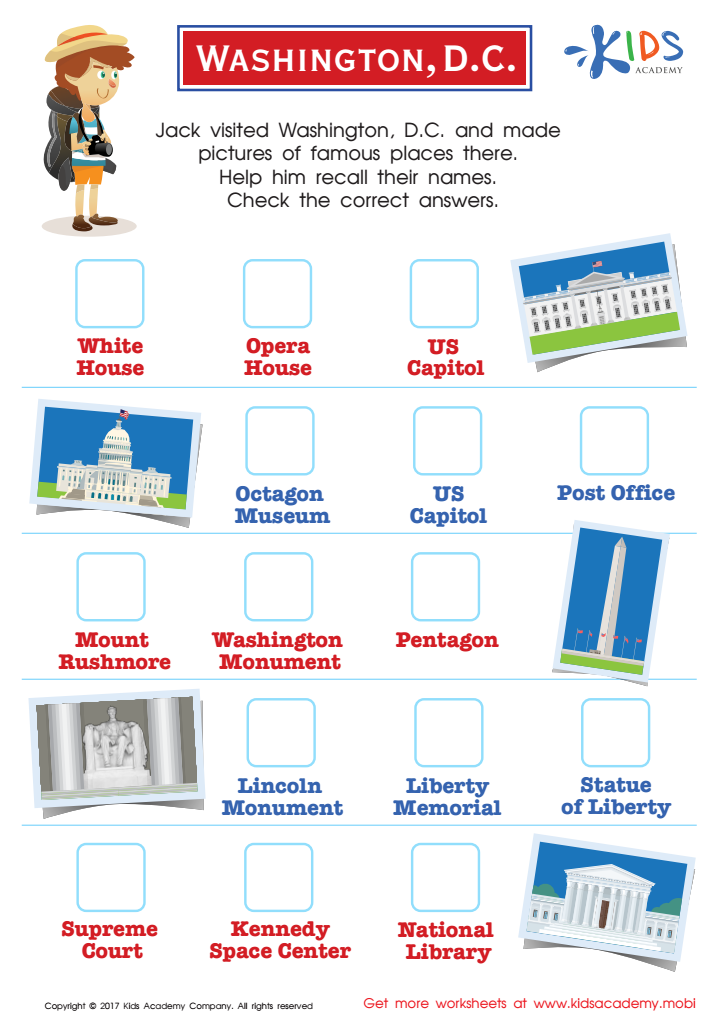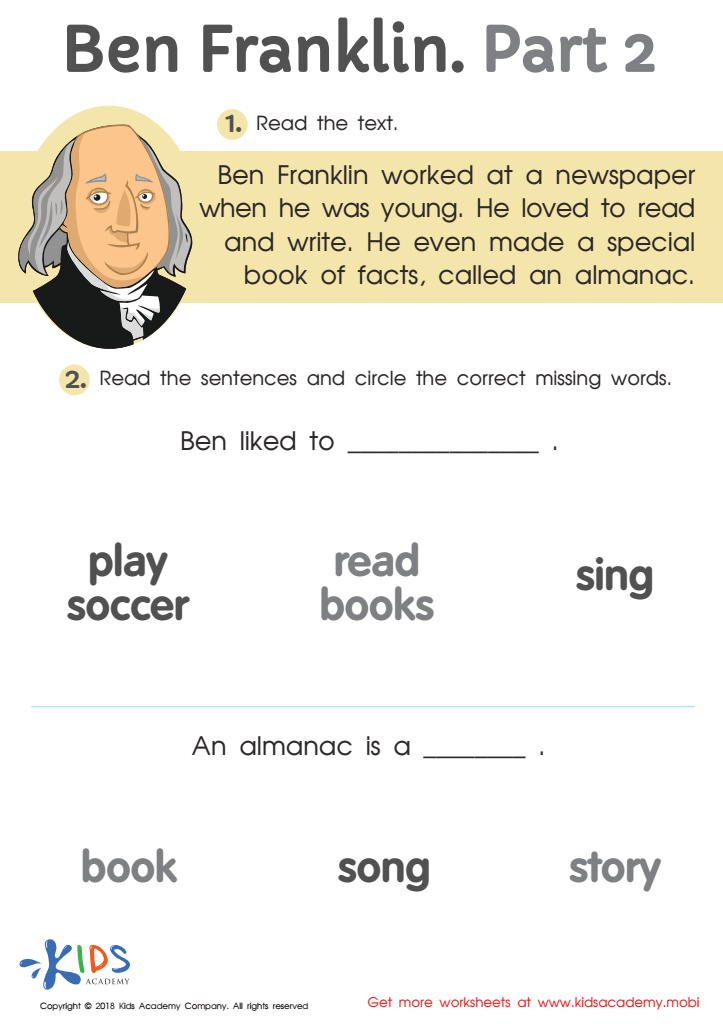Critical Thinking Normal Governance and Civics Worksheets for Ages 8-9
4 filtered results
-
From - To
Welcome to our Critical Thinking Normal Governance and Civics Worksheets for Ages 8-9! Designed to engage young minds, these worksheets promote essential critical thinking skills through interactive exercises that explore governance and civic responsibilities. This resource encourages children to analyze information, question perspectives, and develop informed opinions about their community and country. Each activity aligns with key social studies concepts, empowering students to connect historical events and the importance of civic participation. Perfect for classroom use or homeschooling, these engaging worksheets support educators and parents in fostering critical thinking while building a foundational understanding of governance. Unlock your child's potential today!


Martin Luther King Worksheet


Creating a Law Worksheet


Washington D.C. Printable Worksheet


Ben Franklin Part 2 Worksheet
Parents and teachers should prioritize Critical Thinking, Normal Governance, and Civics education for children aged 8-9 because these foundational skills empower young learners to become informed and responsible citizens. At this developmental stage, children are becoming more aware of their community and the world around them. By nurturing critical thinking, they learn to analyze information, ask essential questions, and evaluate different perspectives, which is vital in an era of information overload.
Incorporating principles of governance and civics at a young age helps children understand the structures that shape their lives. This includes knowing how local, national, and global systems function, the importance of rules and laws, and the role of citizens in a democracy. It instills a sense of responsibility and civic duty, encouraging children to engage and contribute positively to society.
Furthermore, discussions around governance and civics teach children the value of dialogue and debate, helping them navigate conflicts and understand diverse viewpoints. This, in turn, fosters empathy and cooperation. Overall, cultivating critical thinking and civics knowledge provides children with the tools they need to become active, thoughtful participants in their communities and to approach challenges with confidence and insight. Ultimately, this investment in their education leads to a more informed and engaged generation.
 Assign to My Students
Assign to My Students









